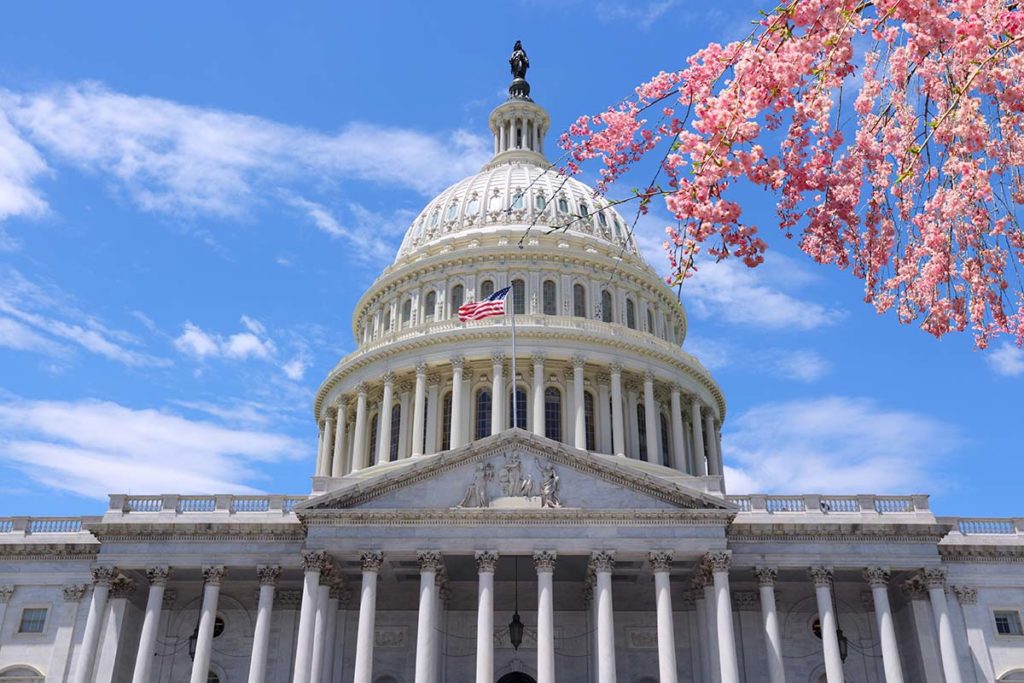
Updated: May 2
WASHINGTON, D.C.–Hundreds of electric cooperative leaders converged on Capitol Hill for NRECA’s Legislative Conference this week to urge Congress to help co-ops take advantage of energy incentives, reduce their federal debt and access billions of infrastructure dollars.
“We have a 100% consumer focus on everything we do, particularly in the context of a discussion about policy priorities,” NRECA CEO Jim Matheson said at an April 27 news conference previewing the conference, which began Sunday and continues through Thursday.
NRECA has identified more than two dozen different components in the $1.2 trillion bipartisan infrastructure bill passed by Congress last year that may be of interest to electric co-ops, Matheson said.
NRECA is helping co-ops band together in consortiums to seek funding for projects in five categories: electric vehicles, microgrids, cybersecurity, natural hazards, and smart grids and data. The association is also working to help its member co-ops get broadband funding that will be distributed by state governments.
NRECA has been meeting with federal agency officials as they make decisions about how to distribute funding from the bill, Matheson said.

“We continue to be actively engaged to look for the best ways for our not-for-profit, community-owned organizations to participate in this process,” he said.
Co-op leaders are also asking members of Congress to help pass two additional bills this year, Matheson said.
The first would provide direct federal payments for electric co-ops to develop new energy resources and technologies, including renewable energy, battery storage projects, nuclear energy facilities and carbon capture and storage.
A direct-pay incentive would put co-ops on a level playing field with investor-owned utilities, which already receive federal tax breaks for providing power from solar, wind and other renewable energy sources and for investing in carbon capture.
“Over the last several years, you had billions of dollars of tax credits go toward renewable energy, for example,” Matheson said. “We’re on the outside looking in.”
NRECA is pushing lawmakers to include a direct-pay incentive for co-ops in any tax bill that Congress takes up this year.
“We’re going to be really aggressive in advocating for direct pay to be part of any tax legislation that moves because we think this is a really important step for our members,” he said.
The other major priority is passage of the Flexible Financing for Rural America Act, which would allow co-ops to refinance their loans from the Rural Utilities Service at lower interest rates without prepayment penalties.
The bill was originally estimated to cost the U.S. Treasury about $4 billion over a 10-year period, according to the Congressional Budget Office, but the cost is likely to go down now that interest rates have gone up, Matheson said.
“I know interest rates are on an upward trajectory right now,” he said. “The value of this to our members may not be what it was when we were talking about this a year ago. But, in the long run, this is the right policy for our members.”
Erin Kelly is a staff writer for NRECA.